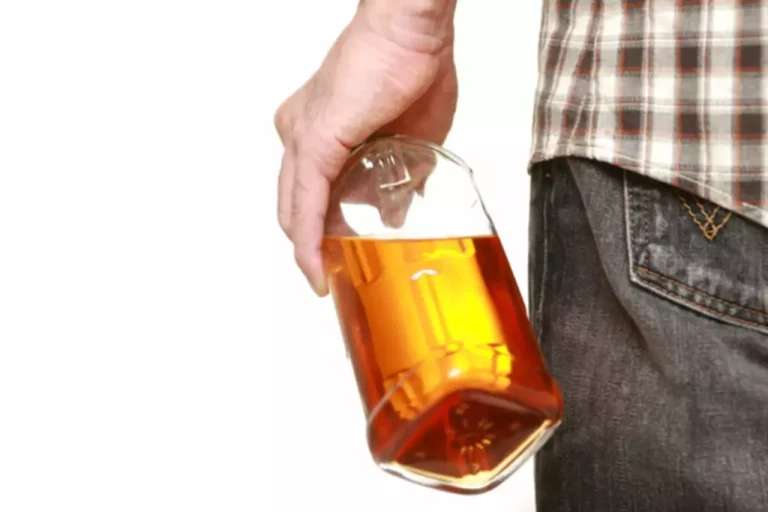
A loss of identity, status, or purpose can even contribute to feelings of depression in older adults. As you get older, the effects of alcohol can become dangerous. People over 65 need to be careful when they drink alcohol. It’s best to follow the guidelines for moderate drinking — but, unfortunately, says Dr. Ford, few people do. “The basic process by which alcohol is metabolized doesn’t change, but after age 65, several factors can alter the way you process it,” says family medicine specialist Donald Ford, MD.

Science X Account
Hou adds, “We can’t change our DNA, but then we can change the function of our DNA by adding different chemicals to it. To learn more about addiction diagnosis and treatment methods, read Overcoming Addiction, a Special Health Report from Harvard Medical School. AARP is a nonprofit, nonpartisan organization that empowers people to choose how they live as they age.

Tip 4: Look for healthier ways to cope with stress

One of the best things we can do to protect our health and longevity is to drink less alcohol. Reframe has helped millions of people around the world cut back on their alcohol consumption — and helped put them on track to lead healthier, longer lives. Interestingly, researchers also noted that shorter telomeres correlated with thiamine (vitamin B-1) deficiency. Our body needs thiamine to metabolize carbohydrates, amino acids, and fatty acids. A severe thiamine deficiency can cause beriberi, a disease that affects several organs and can lead to neurological disorders, such as Wernicke’s encephalopathy or the Wernicke-Korsakoff syndrome. There was no detectable additional damage to the DNA of those who consumed less than 17 units a week — where 20 units equals two 750ml bottles of wine (or, 25.4 ounces) at 13.5 percent alcohol content.
It Can Dry Your Skin
- In the future, Crowley said her team hopes to explore treatment options including using somatostatin, a protein that helps neurons communicate, to restore cognitive declines due to alcohol usage.
- And the alcohol metabolism gene, AD1HB, was the strongest genetic predictor of telomere length.
- It’s a natural process called intrinsic aging, and it’s something you can’t control.
“There are lots of sometimes unpreventable and unavoidable risk factors for cognitive decline, but binge drinking in young adulthood is something that is preventable or can be moderated,” Crowley said. “Talking with a physician can help people understand their personal risk factors and determine a course of action that is best for them and their long-term health.” GABAergic neurons, however, experienced an increase in their excitatory drive. Glutamate—an important “go” neurotransmitter—more frequently signaled to GABAergic neurons, the researchers found. After the break from alcohol, the researchers conducted electrophysiology studies to investigate the impact of binge drinking on the electrical properties of brain cells.
Are Your Drinks Getting Stronger, or Are You Just Getting Older?
- Anya Topiwala qualified in medicine from the University of Oxford and subsequently pursued specialist training in older adult psychiatry.
- And then there are the frequent hangovers from binge drinking.
- If you’re an active person, a dog can make a loyal friend and can accompany you on daily walks.
- Andrades encourages anyone who drinks to be mindful of how many ounces of alcohol you’re consuming.
- Some alcohol support groups, such as AA, also offer online meetings as a convenient way to connect.
Again, it’s not your job to control their behavior, but you can assist them in identifying their triggers and finding ways to better handle them. By doing things that add joy and meaning to your life, you can ease symptoms of anxiety and depression, and also boost the feel-good chemicals in your brain that promote long-term happiness. Your diet is another factor that can affect your physical health as well as your mood and energy levels. If distance or limitations with mobility mean you’re unable to regularly meet with loved ones, embrace technology. Email and text messages are useful for sharing daily life updates and photos. Or you can schedule video calls so you can hear and see friends and family members.
How aging affects this process
Studies of the brain structure of alcoholics have also found similar results. While you’re not alone—research shows that alcohol use is rising among older adults—trying to drink away your problems only creates a dangerous spiral. Even if your drinking habit doesn’t progress into alcoholism or alcohol abuse, you might notice physical, mental, and social consequences to your actions, which in turn may cause you to drink more to relieve the stress. When you drink alcohol, it’s absorbed through the small intestine, processed by the liver, and circulated through your major organs.

Your body can’t process alcohol like it may have before. This can lead to immediate risks, worsening health conditions, adverse reactions with medications, and much more. Similarly, drinking alcohol with medicine for mental health—antidepressants and anti-anxiety medications—can also leave you feeling more drunk than usual and unsteady on your feet. “Our results highlight the negative impact of excessive alcohol consumption, such as binge drinking, on biological aging,” Nannini said.
They might eventually see past their own sense of denial. In the meantime, it’s important that you don’t blame yourself for their actions. Addiction isn’t as straightforward as it may seem, and there are many misconceptions. Take the time to learn about alcoholism and alcohol abuse, including common signs, effects, and myths. Getting seven to eight hours of sleep at night can help reduce feelings of anxiety and depression. Changes in your body’s hormones can lead to difficulty sleeping as you age.

Bad Skin From Poor Diet
Alcohol causes your body to release more stress hormones, which speeds up the aging process. It also affects the healthy functioning of your digestive system, making it harder for you to absorb essential nutrients. This includes vitamins A, B, D, and E; minerals like calcium, magnesium, iron, and zinc; and even basics like proteins and carbohydrates. Alcohol’s all-around negative effect on nutrition means that heavy drinkers often become malnourished. This limits the body’s ability to maintain itself, resulting in faster aging. You might have a few drinks in hopes of forgetting your troubles.
This means that when alcohol is consumed, more of it ends up in the bloodstream, which amplifies its effects on the body. The study was conducted in over 2,000 individuals including both healthy participants and persons living with HIV. The Reframe app equips you with the knowledge and skills you need to not only survive drinking less, but to thrive while you navigate the does drinking alcohol make you age faster journey. Our daily research-backed readings teach you the neuroscience of alcohol, and our in-app Toolkit provides the resources and activities you need to navigate each challenge.
